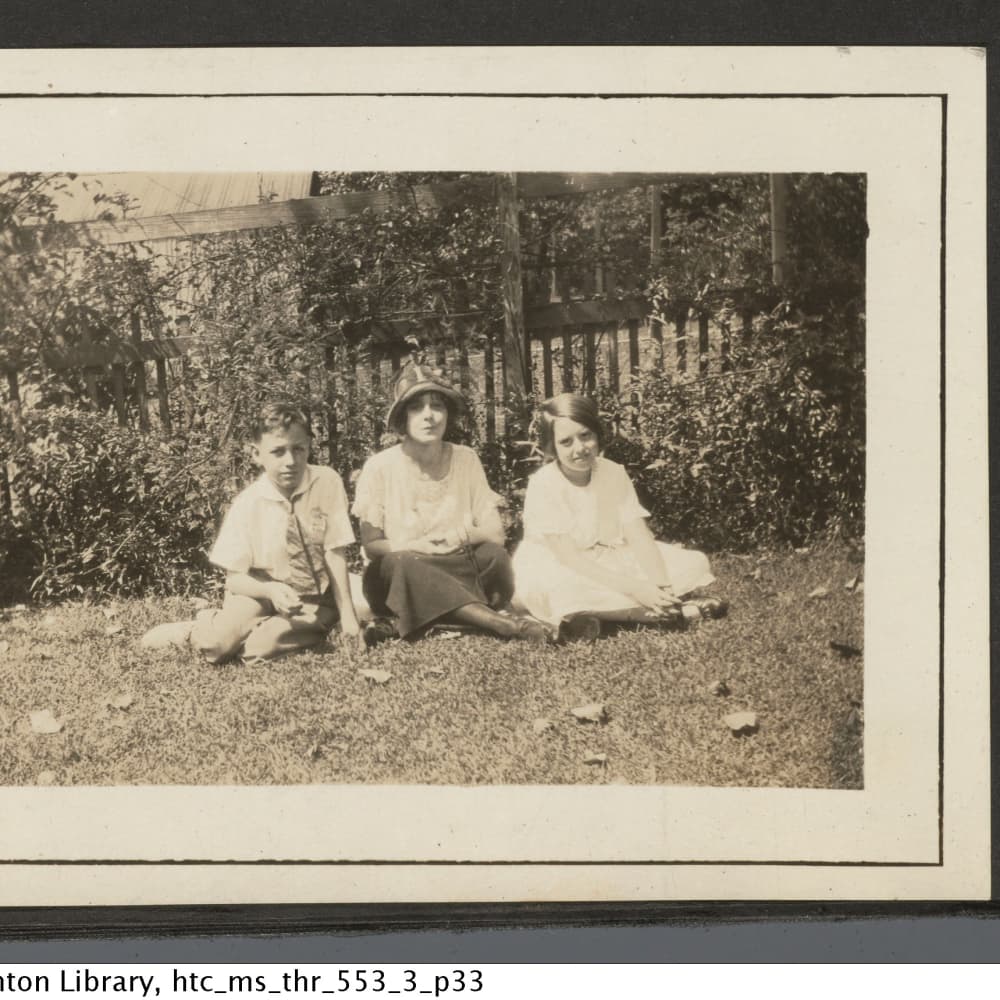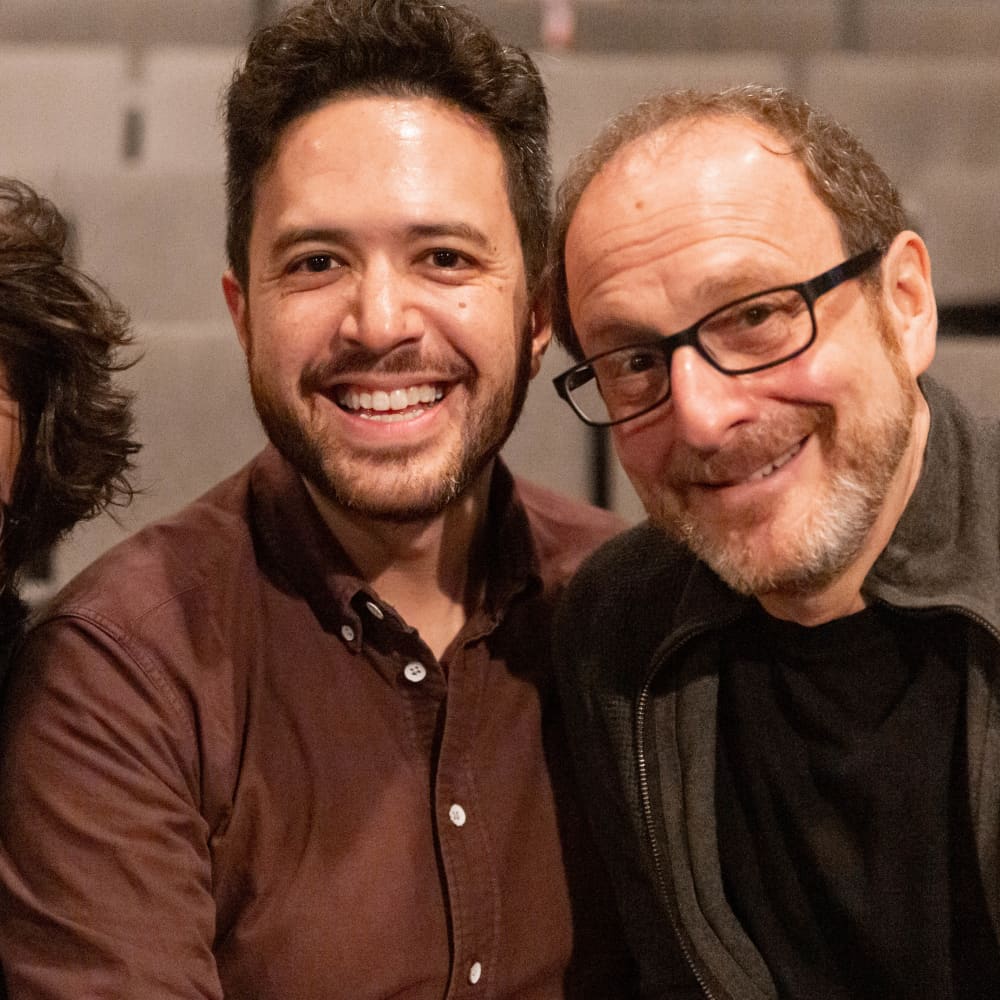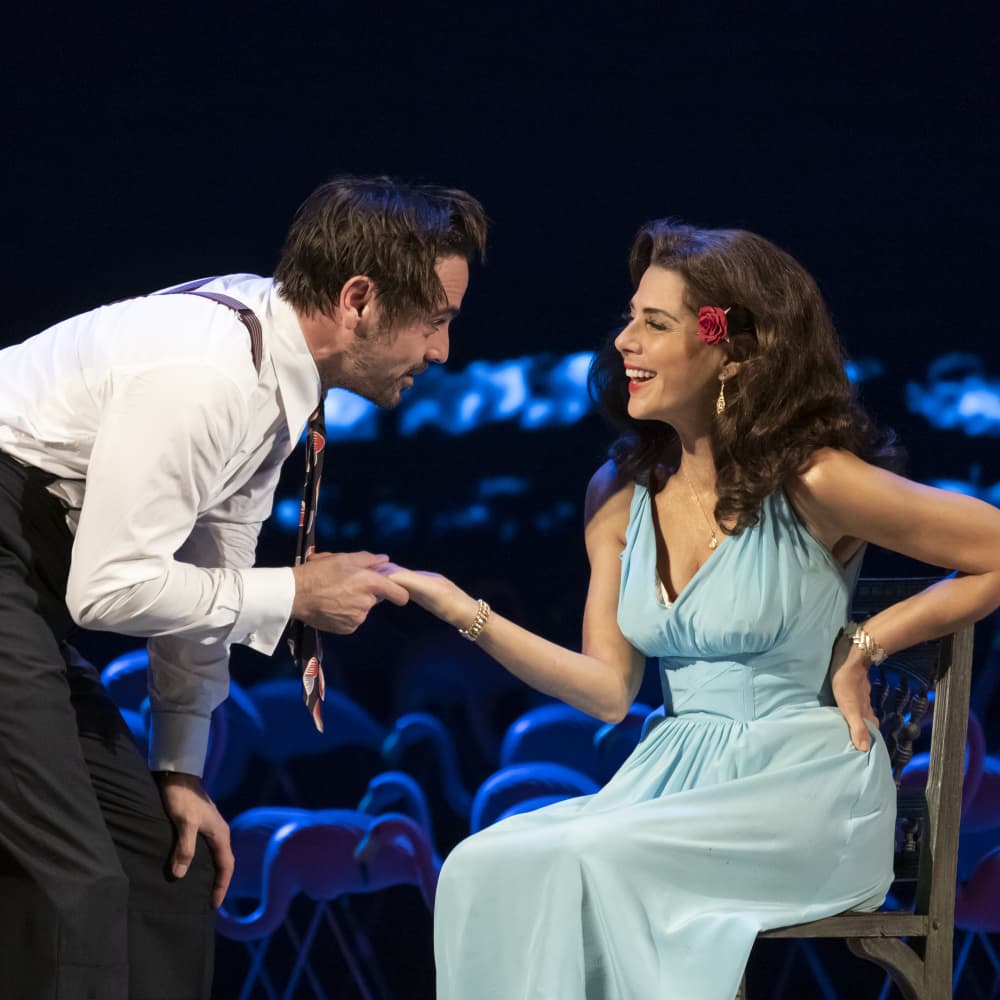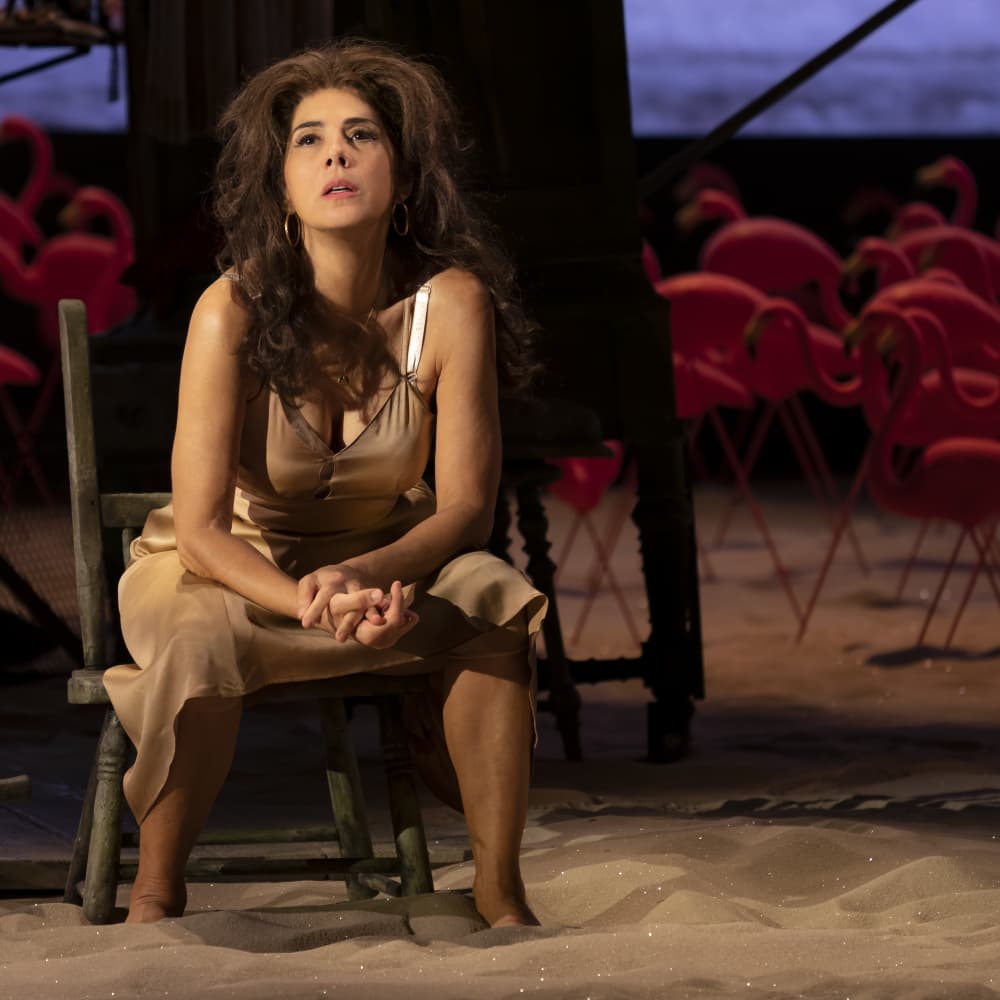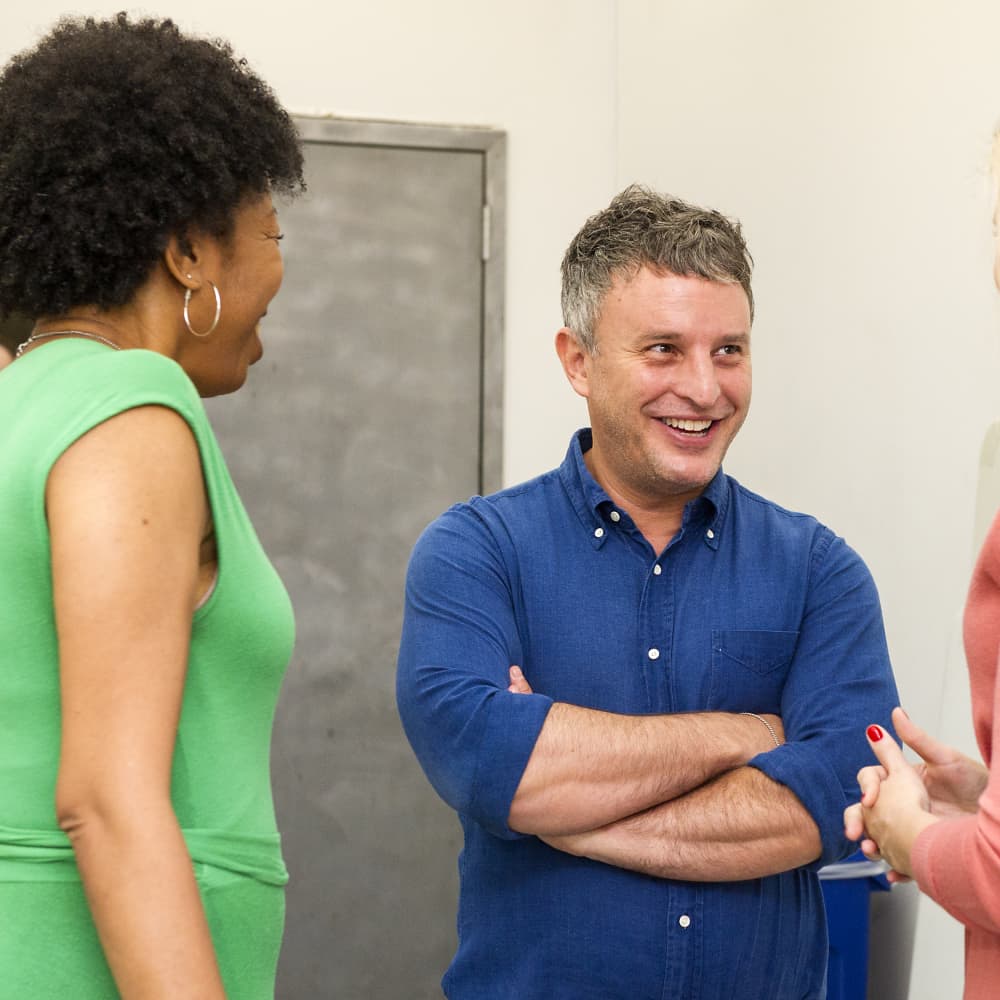Scotland, PA:
An Interview with Director Lonny Price
Posted on: December 4, 2019
Education Dramaturg Ted Sod spoke with director Lonny Price about his work on Scotland, PA.
Ted Sod: Why did you choose to direct Scotland, PA, and how have you been collaborating with the writers Adam Gwon and Michael Mitnick?
Lonny Price: The thing about doing a lot of revivals, particularly by Sondheim, is that it spoils you. The show is already amazing, the kinks worked out, and the quality of the work is of the highest order. I guess what I mean by that is I can be kind of a snob about material, but I fell in love with this show probably… on page 5. (I’m kidding, but awfully quickly.) Michael and Adam know their craft and they have a tremendous respect for and skill in this form. They break rules in an exciting way, but they know the rules they’re breaking.
We’ve been working together on various readings and workshops for three years. It’s a tricky tone because it has something on its mind, and it is also entertaining and funny. Finding the right balance has been challenging, but it seems we are always getting closer to something that has the correct integrity.
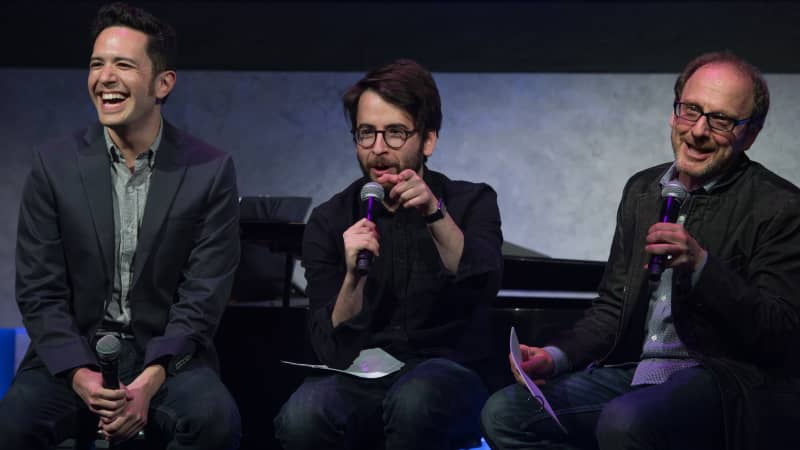
Adam Gwon, Michael Mitnick, and Lonny Price
© Kevin YatarolaTS: What would you say the musical is about?
LP: Scotland, PA is a cautionary tale about how unchecked ambition (desire) and greed leads to doom, and how easy it is to get seduced by those particular (and very human) emotions. And, of course, the cost is the loss of one’s more human values as one climbs the ladder of success. If the show makes people think a little bit about that, that would be wonderful.
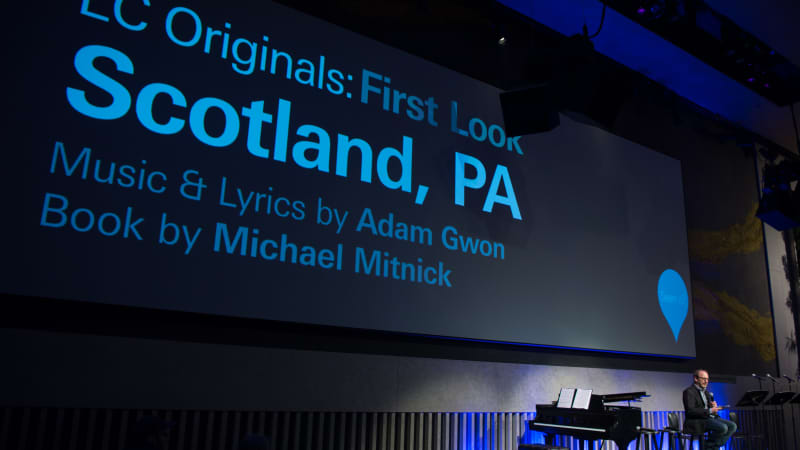
TS: What kind of research did you have to do to direct and dramaturg this show?
LP: Scotland, PA takes place in 1975, so the focus of research for me has been delving into the sociological elements of the seventies. It was a fascinating time what with the Vietnam War finally ending that year(!), the country still reeling from the post-Watergate fallout, the Me Generation on the rise, the women’s movement, the economy being absolutely terrible, etc. I did a lot of reading and watched a lot of documentaries about America in the 1970s. These characters exist in a specific time and place, and knowing as much as you can about the context of the story is enormously useful.
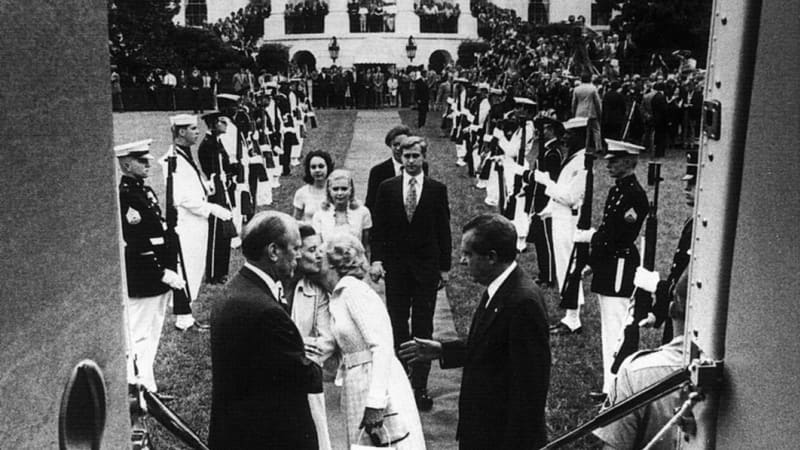
President Nixon leaves the White House after resigning in the wake of the Watergate scandal.
© Oliver F. AtkinsTS: What kind of atmosphere do you like to create in the rehearsal room? Do you look for a lot of collaboration?
LP: I was an actor for many years, and I think my best work was done in a room where I wasn’t afraid, where I was encouraged to try things and allowed to fail, and even fail big. I like to set up a room where the best idea wins and it doesn’t have to be mine. It often isn’t and I’m very good at that. The older I get, the less ego I have about where the good idea comes from. I try to set up a situation where everyone is contributing. I may be the final arbiter but at the same time, I like a lot of input. A free and respectful collaboration is everything.
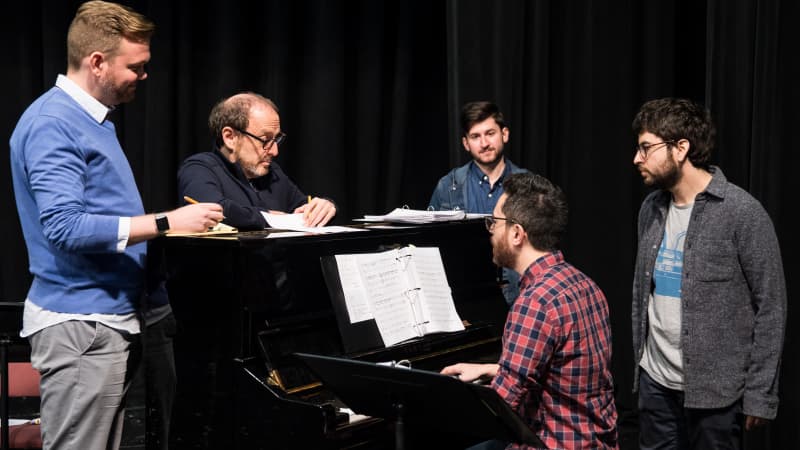
Matt Cowart, Lonny Price, Nick Graffagna, Adam Gwon, and Michael Mitnick at the American Music Theatre Project workshop.
TS: How important is Billy Morrisette’s film in your process? Is it something you return to like the source material, Macbeth?
LP: I’ve seen it several times. Film is such a different medium. We’re obviously in a time where people are turning films into Broadway and off-Broadway musicals every five seconds, but the most successful of them, to me, are the ones that aren’t utterly faithful to their screenplays.
TS: What is your understanding of the relationship between Mac and Pat?
LP: I think they’re two disenfranchised people, very much in love with each other, who are unable to fulfill their potential. Each in a funny way winds up doing things they probably wouldn’t have done had they not thought they were helping the other. Interestingly, the more we worked on the show, the more we started viewing it as a tragic love story. Unlike Macbeth, I think they both make some very bad decisions in service of the other’s supposed happiness. (Gift of the Magi?) I think she’s encouraging him not only for her ambition, but because he has enormous potential that is unrealized and because she genuinely loves him. I think he goes along because he wants her to have better things, a better life than he’s been able to provide for her.
We did a bunch of workshops with wonderful actors in their forties. Then when we went to Northwestern University, we worked with students. What struck us while working with younger people is how much more moving the story was; with people in their forties, they should know better, but in their twenties, you may forgive them a little. They get carried away.
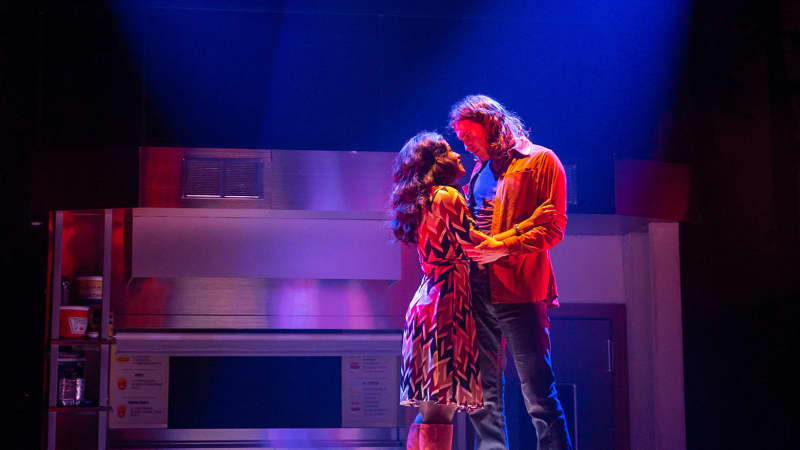
Taylor Iman Jones and Ryan McCartan
© Nina GoodheartTS: I love the device where Mac keeps coming up with all these ideas and Duncan, his employer, doesn’t pick up on any of them. Mac’s seeing into the future in some ways and the musical is saying, “Watch and see how we got to where we are now.”
LP: The essential idea is the explosion of rampant consumerism. You acquire one thing and then you want more, which is a metaphor for this country. It’s gotten so conglomerates are eating each other up to make bigger and bigger companies that seem to be running our government.
TS: What traits did you look for in casting the actors?
LP: A little bit of danger. The people who we cast have a bit of an edge to them because this musical is reflecting our worst nature at times. I looked for people who weren’t afraid to go there. They aren’t cookie-cutter musical-comedy performers. For me, the acting is always paramount. We managed to find wonderful actors who are great singers, so we feel very blessed with this cast.
TS: How will the musical visually manifest in terms of the set?
LP: With our wonderful designer, Anna Louizos, the set is a character in this show, in no small part because the primary location (the restaurant itself) transforms three times. But even more important to me was that the set reflects a growing coldness, less natural anything, more plastic…progress. When you go to rural places, there’s often a Dairy Queen in the middle of the woods or off a small highway. They throw down some blacktop and there it is. So this restaurant is in the middle of a wooded area and as it expands it keeps destroying the nature around it, which is what we do as we keep building up our arsenal of corporations. Regulations disappear, nature gets destroyed. The set reflects the gestation of that very phenomenon very well.
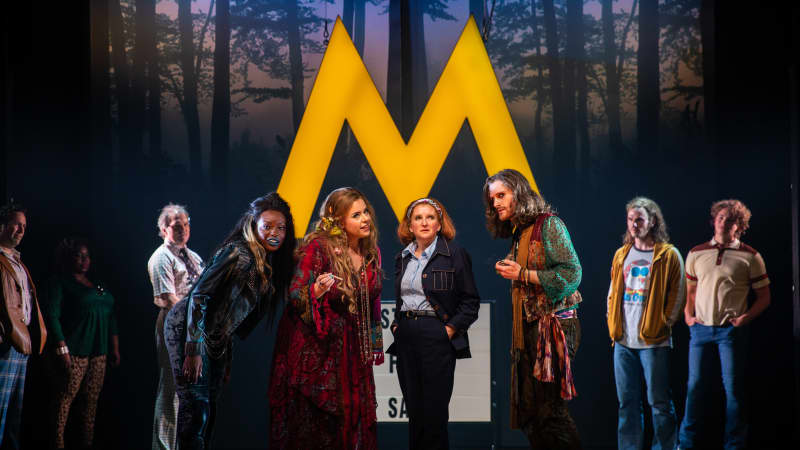
The Company of “Scotland, PA”
© Nina GoodheartTS: What or who inspires you as an artist?
LP: So many people. In the theatre, Stephen Sondheim. Hal Prince has had a huge influence on me. Joe Mantello inspires me; I think he does spectacular work. Dan Sullivan, Sam Gold, John Tiffany, George Wolfe. I feel very lucky to have grown up in the theatre and in New York where I got to see Bob Fosse’s work on the Broadway stage. John Dexter’s production of Equus was wildly inspiring. I work a lot in London, so I really enjoy watching wonderful directors work there. And now, there’s so much great television that’s inspiring. All those new short series like Fleabag, are addictive to watch.
TS: What advice do you have for young people who want to direct for the theatre?
LP: Go to a training program. See as much theatre as you can and see different varieties. Go to BAM, look at world theatre, know what Kabuki is, know what Grand Guignol is, know what German Expressionism is, see Theatre de Complicité. Go to all of the stuff that isn’t mainstream. Do the mainstream stuff as well, but you’ll probably learn more from the stuff on the fringe. If you find a director that you really admire, write to them and see if you can observe on their shows. They will teach you a lot just by osmosis. Also, go to museums a lot. Understand art because it will help you in your design meetings. And, know the world and the time you are living in. Not just its art, but its politics, too. It influences everything.




